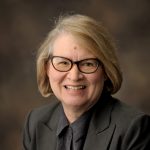Community and technical colleges (CTCs) are working diligently throughout the United States to recruit a diverse student body and boost completion rates at a time when the nation’s economy faces a shortage of technically prepared workers (Carnevale, Jayasundera & Gulish, 2016). At the same time, resource constraints limit data analysis to improve technical programs and pathways through which these students earn credentials. Many factors contribute to limited data use, including the lack of knowledge and awareness of relevant data sets, shortfalls in quantitative research capacity, and constraints in the ways data are used to tell stories about student success (Ewell, 2010; Kirby, 2015).
Growing the research capacity of CTCs by strengthening relationships between state systems, CTCs, and research universities, while simultaneously shifting organizational culture toward data-informed improvement (Phillips & Horowitz, 2017), is needed to facilitate proactive decision making to improve technical education pathways and programs. The data-informed decision-making processes studied in this research project will reverberate beyond improved student outcomes to strengthen technical workforces statewide and nationally. CTCs are poised, like never before, to use state longitudinal data systems (SLDS) to improve technical education; what is missing in their capacity to leverage such data to improve programs is what D4DM intends to address.
D4DM serves as the “connective tissue” among four unique resources in Washington State:
- Washington has a robust network of NSF-ATE technician education grants with 18 colleges having received 35 NSF-ATE grants since 2008.
- The state’s early adoption of a comprehensive LDS means Washington has one of the most robust data systems in the nation to link education and labor market data.
- Washington State is a recognized innovator in pathways reforms, advancing guided pathways, and leads the nation in community college baccalaureate degrees in technical fields.
- The University of Washington’s Evans School of Public Policy & Governance convenes a broad range of stakeholders across the state to collaborate on initiative that contribute to the public good.








